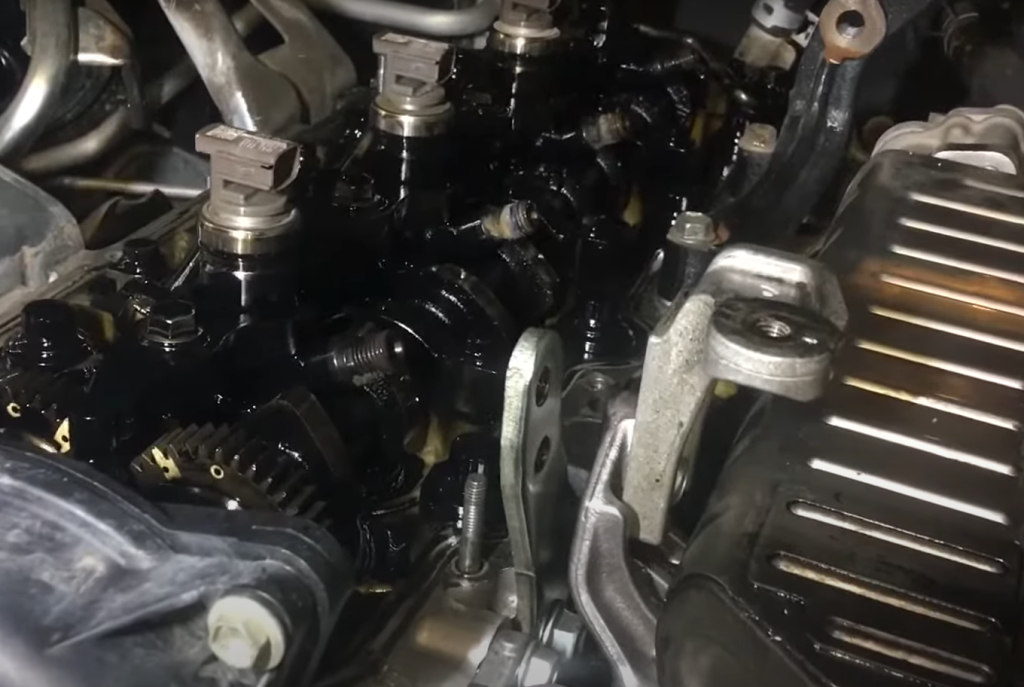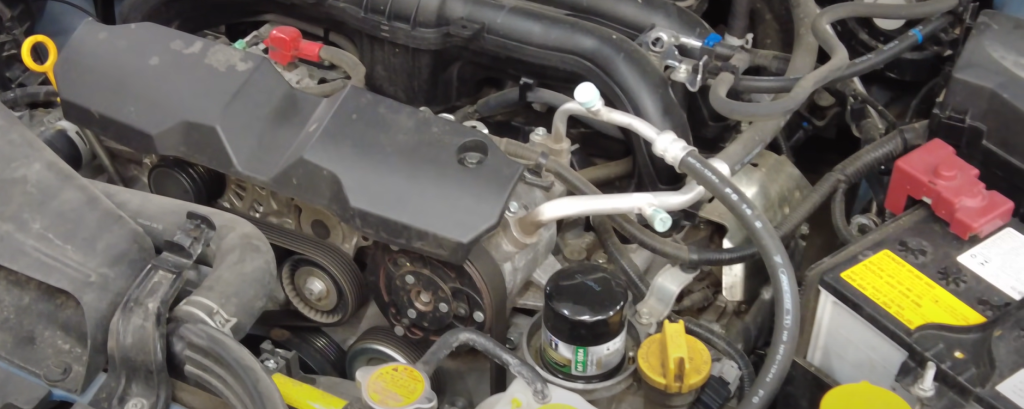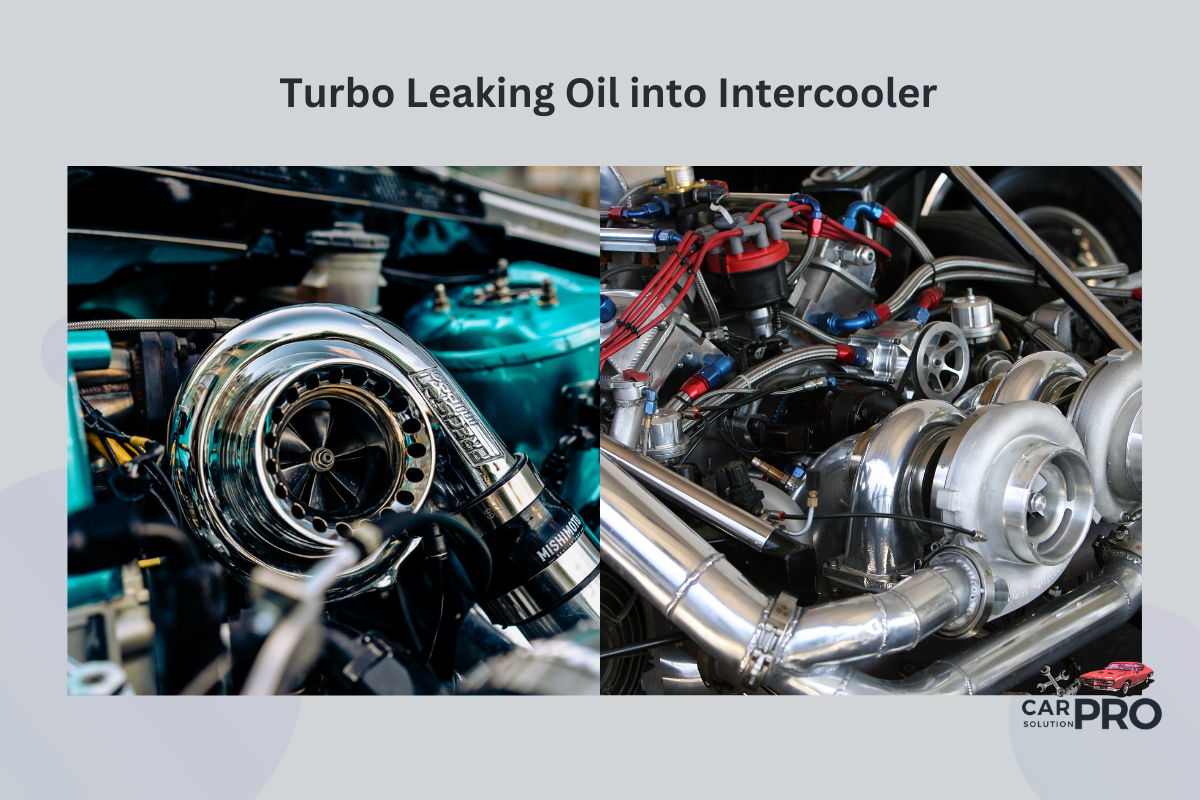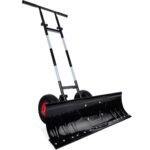A turbo leaking oil into the intercooler is a common problem that can cause serious engine issues if left unchecked. This happens when oil seeps past the turbocharger seals and mixes with the compressed air flowing to the intercooler. The main causes of oil leaks into the intercooler include worn-out turbo seals, PCV system problems, and excessive crankcase pressure.
Drivers may notice decreased engine performance, blue smoke from the exhaust, or oil residue in the intercooler pipes. These signs should not be ignored, as they can lead to more severe engine damage over time. Addressing the issue promptly can save money on repairs and extend the life of the engine.
Fixing a turbo oil leak often involves rebuilding or replacing the turbocharger and draining oil from the intercooler system. Regular maintenance and avoiding excessive boost pressure can help prevent these leaks from occurring in the first place.
Key Takeaways
- Oil leaks into the intercooler are often caused by failing turbo seals or system issues.
- Signs of oil leaks include reduced engine performance and blue exhaust smoke.
- Prompt repair and proper maintenance can prevent costly engine damage.
Understanding Turbochargers
Turbochargers boost engine power by forcing extra air into the combustion chamber. They use exhaust gases to spin a turbine, which drives a compressor wheel.
Components and Function
A turbocharger has two main parts: a turbine and a compressor. The turbine sits in the exhaust stream and spins when hot gases flow through it. This turbine is connected by a shaft to the compressor wheel.
As the turbine spins, it turns the compressor wheel. The compressor sucks in outside air and pushes it into the engine’s intake system. This compressed air is denser than normal air, allowing more fuel to be burned.
The turbo housing contains bearings and seals. These keep the shaft spinning smoothly and prevent oil from leaking. Worn-out seals can cause oil to leak into the air intake system.
Role of the Intercooler
An intercooler cools the compressed air from the turbocharger before it enters the engine. This cooling makes the air denser, allowing even more air to fit in the cylinders.
The intercooler looks like a small radiator. Hot air from the turbo passes through its tubes. Cool outside air flows over these tubes, absorbing heat from the compressed air inside.
A cooler air charge reduces the risk of engine knock. It also helps prevent overheating in turbocharged engines. This allows for higher boost pressures and more power.
Intercoolers can be air-to-air or air-to-water designs. Air-to-air types use outside air for cooling. Air-to-water systems use engine coolant to remove heat from the charged air.
Causes of Oil Leaks in Turbo Systems

Oil leaks in turbo systems can stem from various issues within the engine. These problems can lead to oil entering the intercooler, affecting engine performance and potentially causing damage.
Worn Seals and Bearings
Turbochargers have seals that keep oil inside the system. Over time, these seals can wear out. When this happens, oil can escape and mix with the compressed air.
Worn bearings in the turbo can also cause oil leaks. As bearings degrade, they allow more oil to pass through. This extra oil can end up in places it shouldn’t be, like the intercooler.
Regular maintenance is key to preventing these issues. Checking and replacing seals and bearings when needed can help avoid costly repairs later on.
Over-Pressurization
Too much pressure in the engine can force oil past seals and gaskets. This can happen if the PCV system isn’t working right. The PCV system helps control pressure in the engine.
If the PCV valve gets clogged, pressure builds up. This extra pressure can push oil into areas it shouldn’t go, like the turbo system.
Fixing over-pressurization often involves cleaning or replacing the PCV valve. It’s a simple fix that can prevent bigger problems.
Cracked Hoses or Connections
Oil can leak through any weak points in the turbo system. Cracks in hoses or loose connections are common culprits.
Heat and pressure can cause hoses to crack over time. Vibrations can loosen connections between parts. Even small cracks or gaps can let oil seep out.
Regular checks of all hoses and connections can catch these issues early. Replacing cracked hoses and tightening loose fittings can stop oil leaks before they become serious.
Diagnosing Oil Presence in the Intercooler
Spotting oil in the intercooler requires careful inspection and testing. Proper diagnosis helps pinpoint the source of the leak and guides repairs.
Visual Inspection Techniques
Start by checking the intercooler pipes for oil residue. Look for wet, greasy spots or drips. Remove the intercooler and inspect the inside for oil pooling.
Examine the turbo housing for oil leaks. Check the air intake hoses for oily residue. A slick, greasy film indicates oil contamination.
Use a flashlight to peer into hard-to-see areas. Take photos to document any oil traces found. Clean surfaces thoroughly before inspection to avoid false positives.
Pressure Testing
Perform a pressure test to find hidden leaks. Seal off the intercooler inlet and outlet. Apply low pressure air (about 15 psi) to the system.
Listen for hissing sounds that signal leaks. Spray soapy water on connections to see bubbles form at leak points.
Monitor pressure gauge for drops, which indicate leaks. Repeat test with engine running to check for leaks under operating conditions.
Use a smoke machine to visualize air flow and pinpoint exact leak locations. This method helps find small leaks that might be missed visually.
Resolving and Preventing Oil Leaks
Fixing oil leaks in turbo systems requires replacing damaged parts, proper installation, and regular upkeep. These steps help keep the turbo running smoothly and prevent future leaks.
Replacement of Faulty Components
Worn bearings or oil seals are common causes of oil leaks in turbos. Mechanics should check these parts for damage and replace them if needed. The turbo shaft also needs inspection for excessive play or damage.
Cracked housings can lead to leaks too. A thorough check of the turbo’s compressor and exhaust housings is crucial. Any cracks or damage mean the housing needs replacement.
The PCV (Positive Crankcase Ventilation) system can cause oil to leak into the intercooler. If faulty, it should be replaced to stop oil from entering the intake system.
Ensuring Correct Installation
Proper turbo installation is key to preventing oil leaks. The oil feed and drain lines must be installed correctly. Mechanics should make sure there are no kinks or blockages in these lines.
The turbo’s position is important. It should be mounted at the right angle to allow proper oil drainage. If installed incorrectly, oil can build up and leak into the intake or exhaust.
Boost pressure needs to be set correctly. Too much boost can damage seals and cause leaks. Mechanics should check and adjust boost levels to match the turbo’s design specs.
Regular Maintenance Schedule
Regular oil changes are vital for turbo health. Clean oil helps prevent sludge buildup that can damage seals. Most experts recommend changing oil every 3,000 to 5,000 miles for turbocharged engines.
Air filter replacement is also important. A clean air filter stops debris from entering the turbo and causing damage. It should be changed according to the manufacturer’s schedule.
Cooldown periods after driving help protect the turbo. Letting the engine idle for a minute before shutting off allows oil to keep flowing through the turbo. This prevents oil from cooking in the bearings and causing damage.
Impact of Oil Contamination
Oil leaking into the intercooler can cause serious problems for a vehicle’s engine. It affects performance and may lead to costly damage if not addressed quickly.
Engine Performance Issues
Oil contamination in the intercooler reduces its cooling efficiency. This leads to higher intake air temperatures and lower oxygen density. As a result, the engine’s power output drops.
Drivers may notice:
- Sluggish acceleration
- Reduced fuel economy
- Black smoke from the exhaust
- Engine misfires or rough idling
The oil can also coat sensors, causing inaccurate readings. This confuses the engine control unit, leading to poor performance.
Potential Engine Damage

If left unchecked, oil in the intercooler can cause severe engine damage. The oil may be pushed into the combustion chambers, leading to several issues.
These include:
- Carbon buildup on valves and pistons
- Premature wear of engine components
- Clogged catalytic converter
- Detonation or pre-ignition
In extreme cases, oil accumulation can cause hydrolock. This happens when liquid oil enters cylinders, preventing proper piston movement. Hydrolock can bend connecting rods or crack the engine block.
Regular inspections and prompt repairs are crucial to prevent these costly damages.
Frequently Asked Questions
Turbo oil leaks into intercoolers can cause various issues. Understanding the symptoms, causes, and solutions is crucial for maintaining engine performance.
What are the common symptoms indicating a leak in the turbo intercooler system?
Common signs of an oil leak in the turbo intercooler include blue or white smoke from the exhaust, reduced engine power, and increased oil consumption. Drivers may notice a burning oil smell or see oil residue in the intercooler pipes.
Excessive boost pressure can also indicate a leak, as oil contamination affects the system’s efficiency.
What could cause a turbocharger to leak oil into the intercooler?
Several factors can lead to oil leaks in the turbo system. Worn-out turbo seals are a primary cause, allowing oil to seep into the pressurized side of the turbo.
PCV system issues can also contribute to oil leaks. Overheating and running excessive boost pressure can damage seals and gaskets, leading to leaks.
How can I diagnose and fix an oil leak within my turbo intercooler?
To diagnose an oil leak, inspect the intercooler pipes for oil residue. Check the turbo seals and PCV system for damage or wear.
Fixing the issue often requires rebuilding or replacing the turbo. After addressing the root cause, drain the oil from the intercooler and clean the system thoroughly.
Is a small amount of oil in the intercooler pipe considered normal?
A small amount of oil in the intercooler pipe can accumulate over time, but it’s not typical. Regular oil presence indicates a problem, usually with the turbo oil seals.
Consistent oil in the intercooler pipes should be investigated to prevent more serious issues from developing.
What potential issues can arise from oil contamination in the turbo intercooler?
Oil contamination in the turbo intercooler can lead to reduced cooling efficiency and decreased engine performance. It may cause engine misfires and increased exhaust emissions.
Over time, oil buildup can damage other engine components and potentially lead to costly repairs if left unaddressed.
How does oil in the intercooler affect engine performance and efficiency?
Oil in the intercooler reduces its ability to cool intake air effectively. This leads to higher intake temperatures and decreased engine efficiency.
The oil can also enter the combustion chamber, causing incomplete fuel burning and reduced power output. Engine responsiveness may decrease, and fuel consumption often increases.
When you purchase a product through Amazon links on carsolutionpro.com, we may earn a small commission at no extra cost to you. This helps support the site and keep our content free. As an Amazon Associate, we earn from qualifying purchases made through our links.










